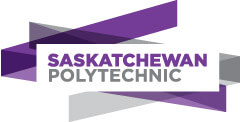About Educational Assistant Certificate in Saskatchewan Polytechnic
Program Overview
If you like working one-on-one with kids with different needs, and you want to see them included in the classroom, becoming an educational assistant might be the career for you. Educational assistants provide the all-important one-on-one support that makes today’s inclusive classrooms possible.
The Educational Assistant program is respected by school boards province-wide. We’ll teach you the skills and give you the hands-on experience you need to make a lasting difference in a child’s life.
Note: The Regina Campus delivery of this program is suspended, effective July 1, 2016.
Saskatchewan Polytechnic offers the one-year Educational Assistant certificate program in Saskatoon, as well as through regional colleges around the province. Or, you can take the certificate through distance education. Whether you study on campus or via distance learning, you’ll participate in two 4-week practicums - one in an elementary school, one in a high school.
Why Practicums?
Putting you in the classroom lets you apply what you’ve learned to helping children with different needs. You’ll see first hand the kind of technology being used and the curriculum being taught. You’ll have a package of guidance strategies to help deal with situations as they arise. Most importantly, you’ll gain a solid understanding of what to expect in a real classroom with real kids.
What You’ll Learn
Your job is to assist classroom teachers by working with children or youth with diverse learning needs. Saskatchewan Polytechnic provides the knowledge and skills you’ll need, including:
- basic care skills (lifting to feeding)
- classroom management and crisis prevention techniques and strategies
- communication skills and professionalism
- cultural awareness and family dynamics
- exceptionalities (causes, characteristics and accommodations)
- social, emotional, cognitive development (children and teens)
- supporting teachers in specific subject areas
- your role in the classroom
“Our students always say that the practicums are their favourite part of the program. They get to see what the job is really all about. It’s one thing to learn from lectures and textbooks, but being in the classroom really puts it in perspective.” - Program Head
Career and Salary Information
Your Career
Educational Assistant graduates work in elementary, junior high and high schools in communities around the province. School divisions offer full time, part time and casual positions. You might be based in the classroom or resource room. You might assist with a lunch program or a before/after school program.
You can also explore career opportunities outside the traditional school setting—in youth centres, community centres, care facilities and alternative education programs.
For more information, contact the Student Employment Services at the Saskatchewan Polytechnic campus nearest you.
Academic qualification equivalents:
- Secondary School Diploma or equivalent, include one English, Grade 12 (ENG4C or ENG4U), minimum 60%
English language requirements (one of the below):
- IELTS : Overall minimum score of Band 6.5 with a minimum score of 5.0 in each component.
- TOEFL : An overall minimum score of 81 on the Internet-based Test of English
- PTE : A minimum score of 63 with minimum component scores of 50.
Saskatchewan Polytechnic Highlights
| Type |
Public |
| Campus Setting |
Urban |
| Application mode |
Online and Paper mode available |
| Graduation rate |
62% |
| Acceptance rate |
96% |
| Number of Students |
16,008 |
| Overall cost of living |
14,762 CAD |
| Academic calendar |
Semester based |
| % of International students |
6% |
| Number of campuses |
4 |
| Medium of instructions |
English |
| Undergraduate Tuition fee |
14,044 CAD |
| Postgraduate Tuition fee |
16,426 CAD |
| Cost of living |
694 -1147 CAD per month |
Saskatchewan Polytechnic First-Year Tuition Fees And Living Expenses For International Students
Over the course of one academic year, the following graph displays tuition and living expense estimates in Canadian currency for one full-time international undergraduate student. Please bear in mind that these are only estimates; actual pricing will vary depending on your needs and preferences. Other factors to consider include currency changes, visa and study authorization fees, and vacations back home.
- For international students, the overall fees will range from:-
| Particulars |
Amount |
| Administrative fees |
50.00 to 150.00 CAD |
| Application fees |
150 CAD |
| Student association fee |
95.00 to 445.00 CAD |
| Non-refundable fee at the start) |
1,000 CAD |
| Tuition fee range |
6,195 to 18,089 CAD |
| Laboratory fee |
100.00 to 409.00 CAD with no fees for
some courses which do not have a lab service. |
| Books and Supplies |
200 to 3,725 CAD |
| Technology fee |
50 to 146 CAD |
- For a student of Saskatchewan Polytechnic the required financials (Cost of Attendance) can be:-
| Description of Financials |
Amount in CAD |
| Average cost of tuition |
11245.77 CAD |
| Cost of living |
10799.39 CAD |
| Application fee |
150 CAD |
| Estimated total (per year) |
22,195.16 CAD |
